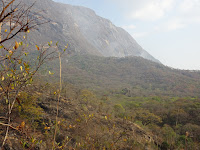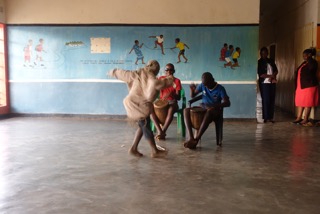Birgit and I left for safari in South Luangwa Natural Park in Zambia with visiting friends over the weekend. On our way back Tuesday I received a call from my colleague Esther. On a broken line I asked her to repeat her message, which I did not comprehend. Her repeating the message left me still without comprehending, but not due to a difficult phone line. Nevertheless, the reality sunk in: "We lost Wellington!" He had died some minutes earlier on that Tuesday.
The entire NCA team was in shock. Wellington had been an important colleague for one year, challenging us with his academic strength, advising us on how to be more professional, and encouraging us to put words to what we had achieved but not been good enough to report on. His contagious laughter was no more to be heard.
As employer NCA was expected to take lead in the preparations for the funeral rites,and the whole team was immediately put to work: including buying coffin, and bringing the body from the mortuary to his home in area 25 in Lilongwe. Our team facilitated the practical arrangements for bringing the body to his home village in Dowa, about 1 1/2 hours north of Lilongwe, and securing transport for the closest family and friends. Food for the expected crowd to attend the funeral should also be in place before the funeral on Thursday.
Paying the last respect in Wellington's home village
On Thursday, in Wellington's home village, people trickled in during morning hours. They were invited to pay the last respect, while the diggers were working hard to dig the grave in the village graveyard in the outskirts of the village. While waiting, all hundreds of mourners were treated with food. After some hours the diggers and their supervisors entered the village in a procession, singing. Time had come to start the ceremony in the square around which people had waited under the trees and wherever they could find shade for the blistering sun.
The diggers have completed the grave
The coffin was brought, and the speeches, including the village chief, the local parliamentarian, me as his employer, and his local church pastor were delivered.
Mourners gathered around the coffin
The local chief appreciating the life of Wellington
A local health worker seized the moment when this big crowd was together to share some important health messages, and to announce the arrival of a mobile health team. The local community police urged people to help them bring to an end an upsurge of crime in the area, that had been experienced as of late.
Time had come to bring Wellington's body to his last rest. The crowd followed the coffin to the cluster of trees under which the grave had been dug.
The village graveyard under the trees
Returning from the grave, women... and then men






























